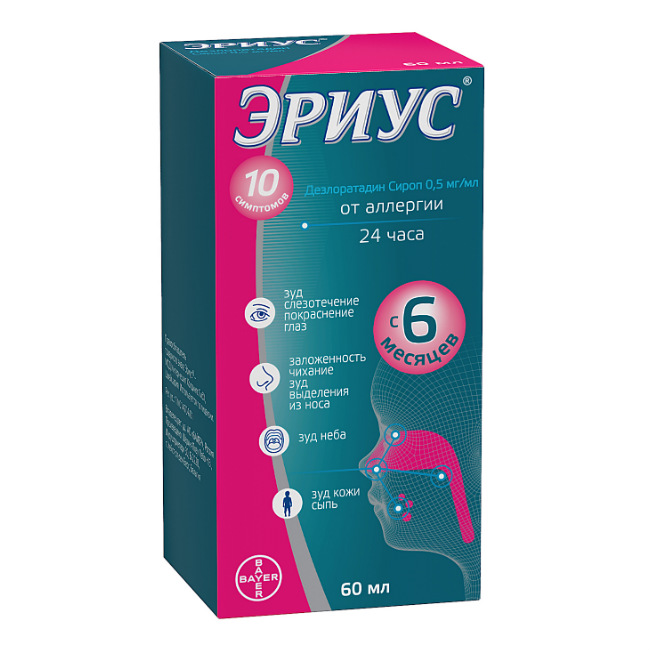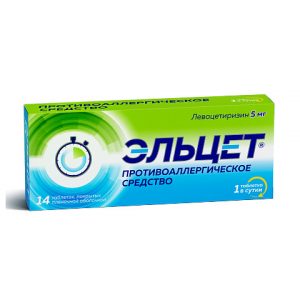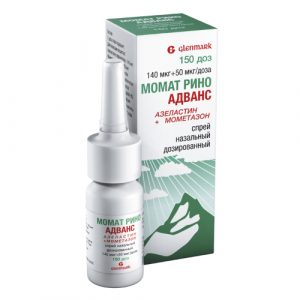Description
Latin name
Vero drff0146 drug allergyfanfanfanfanfanfanfanfanfanfanfanfanfanfanfan
Erius in the form of a syrup is a drug of the latest generation, with triple activity against allergies: anti-inflammatory, antihistamine and anti-allergic (1), which can be taken to children from 6 months.
Erius helps to eliminate 10 allergy symptoms: – Itching, redness and lacrimation of eyes
– Congestion, sneezing, itching and nasal discharge
– Itching of the palate
– Itching of the skin, rash
The drug is indicated: – for seasonal and perennial allergic rin with urticaria
Erius Syrup helps relieve allergy symptoms in children. It surpasses certain 2nd generation antihistamines (2) in important properties for children: – does not cause drowsiness (possible frequency is less than 1 in 10,000 patients)
– does not interact with other
drugs – can be used regardless of food intake.
How to use: 1 time per day, able to start acting within 30 minutes and maintain the effect for 24 hours. Dosed depending on the age of the child (6 months 12 years and older)
1. Canonica GW., Blaiss M. Antihistaminic, anti-inflammatory, and antiallergic properties of the nonsedating second-generation antihistamine desloratadine: a review of the evidence. World Allergy Organ J. 2011 Feb 4 (2): 47-53.
2. For example, drowsiness when taking cetirizine reaches 1.8% in children from 6 months. up to 12 years and up to 9.63% in adults, the simultaneous use of cetirizine with drugs that depress the central nervous system can further reduce the concentration of attention and speed of reactions (instructions for the use of the drug Zirtek) levocetirizine should be taken with food or on an empty stomach (instructions for the use of Suprastinex )
Release form
Orange syrup, transparent.
Packaging
In a dark glass bottle 60 ml of syrup. In the package there is 1 bottle complete with a measuring spoon, having a graduation of 2.5 ml and 5 ml.
Pharmacological action
Long-acting antihistamine, peripheral histamine H1 receptor blocker. Desloratadine is the primary active metabolite of loratadine.
Inhibits a cascade of allergic inflammation reactions, including release of pro-inflammatory cytokines, including interleukins IL-4, IL-6, IL-8, IL-13, release of pro-inflammatory chemokines, production of superoxide anions by activated polymorphonuclear neutrophils, adhesion and chemotaxis of eosinophils, isolation of adhesion molecules such as P-IgEs indirect release of histamine, prostaglandin D2 and leukotriene C4.
Thus, it prevents the development and facilitates the course of allergic reactions, has an antipruritic and antiexudative effect, reduces capillary permeability, prevents the development of tissue edema, smooth muscle spasm.
The drug has no effect on the central nervous system, practically does not have a sedative effect (does not cause drowsiness) and does not affect the speed of psychomotor reactions.
Does not cause prolongation of the QT interval on the ECG.
The effect of the preparation Erius ® begins within 30 minutes after ingestion and lasts for 24 hours.
Contraindications
– Inherited diseases due to the presence of sucrose and sorbitol in the preparation: fructose intolerance impaired glucose / galactose absorption, sucrose / isomaltase deficiency in the body. – Pregnancy. – The period of lactation (breastfeeding). – Children’s age up to 6 months. – Hypersensitivity to the components of the drug. With caution, the drug should be used in case of severe renal failure.
Special instructions
Pediatric use The efficacy and safety of the use of the drug Erius ® syrup in children under 6 months of age has not been established.
Studies on the efficacy of the drug Erius ® for rhinitis of infectious etiology have not been conducted. Effects on ability to drive vehicles and mechanisms The potential for side effects such as dizziness and drowsiness should be considered.
When the described adverse events occur, you should refrain from performing these activities.
Composition
1 ml – desloratadine (micronized) 500 ?g
Excipients:
propylene glycol – 100 mg,
sorbitol – 150 mg,
citric acid – dihydrate – 1.26 mg,
sodium benzoate – 1 mg,
disodium edetate – 250 ?g,
sucrose – 490 mg,
flavoring No. 15864 – 750 ?g,
dye sunny sunset yellow – 23 ?g,
purified water – up to 1 ml.
Side effects of
In children aged 6 to 23 months, the following side effects were noted, the frequency of which was slightly higher than with placebo (“dummy”): diarrhea (in 3.7% of cases), fever (2 , 3%), insomnia (2.3%). In children aged 2 to 11 years with the use of the drug Erius ® syrup, the frequency of side effects was the same as with placebo. According to the results of clinical studies in children aged 6 to 11 years when taking the drug in recommended doses (2.5 mg / day), no side effects were detected.
In children aged 12-17, according to the results of clinical trials, the most common side effect is headache (5.9%), the frequency of which was no higher than when taking a placebo (6.9%).
In adults and adolescents (12 years of age and older), according to the results of clinical trials, side effects were recorded in 3% of patients compared with the placebo group, of which most often were noted: increased fatigue (1.2%), dry mouth ( 0.8%), headache (0.6%).
Information about side effects is presented according to the results of clinical studies and observations of the post-registration period.
According to the World Health Organization (WHO), side effects are classified according to their frequency of development as follows: very often (? 1/10), often (from? 1/100 to <1/10), infrequently (from? 1/1000 to <1/100), rarely (from? 1/10000 to <1/1000), very rarely (<1/10000) the frequency is unknown - according to the available data it was not possible to establish the frequency of occurrence. From the psyche: very rarely – hallucinations. From the side of the nervous system: often – headache often (in children under 2 years) – insomnia is very rare – dizziness, drowsiness, insomnia, psychomotor hyperactivity, convulsions. From the side of the liver and biliary tract: very rarely – increased activity of liver enzymes, increased concentration of bilirubin, hepatitis, frequency unknown – jaundice. From the digestive system: often – dry mouth, often (in children under 2 years) – diarrhea very rarely – abdominal pain, nausea, vomiting, dyspepsia, diarrhea. From the cardiovascular system: very rarely – tachycardia, heart rate, frequency unknown – prolongation of the QT interval. From the musculoskeletal system: very rarely – myalgia. From the skin and subcutaneous tissues: frequency unknown – photosensitivity. General disorders: often – increased fatigue, often (in children under 2 years) – fever is very rare – anaphylaxis, angioedema, shortness of breath, itching, rash, including urticaria, frequency is unknown – asthenia. Post-registration period. Children: frequency unknown – prolongation of the QT interval, arrhythmia, bradycardia. If any of the side effects indicated in the instructions are aggravated, or you notice any other side effects not listed in the instructions, inform your doctor. Drug Interactions No interaction with azithromycin, ketoconazole, erythromycin, fluoxetine and cimetidine was detected in the studies. Erius ® does not enhance the action of ethanol on the central nervous system. Eating does not affect the effectiveness of the drug. Overdose Symptoms. Taking a dose exceeding the recommended 5 times did not lead to the appearance of any symptoms. In clinical trials, daily use of desloratadine in a dose of up to 20 mg for adults and adolescents for 14 days was not accompanied by statistically or clinically significant changes in the cardiovascular system. In a clinical and pharmacological study, the use of desloratadine at a dose of 45 mg per day (9 times higher than recommended) for 10 days did not cause an extension of the QT interval and was not accompanied by the appearance of serious side effects. treatment. If you accidentally ingest a large amount of the drug, you must immediately consult a doctor. Gastric lavage is recommended, the use of activated charcoal if necessary – symptomatic therapy. Desloratadine is not excreted during hemodialysis, the effectiveness of peritoneal dialysis has not been established. Storage conditions The product should be stored out of the reach of children at a temperature not exceeding 30 ° C. Expiration 2 years. Active ingredient Desloratadine Conditions of release from drugstores Without prescription Dosage form solution for ingestion Prescription For children over 6 months of age, For adults Indications Indications Swelling of the nasal mucosa, Dermatitis, Pollinosis, Urticaria, Allergic rhinitis, K itching, Allergic conjunctivitis, Diathesis, Allergy




